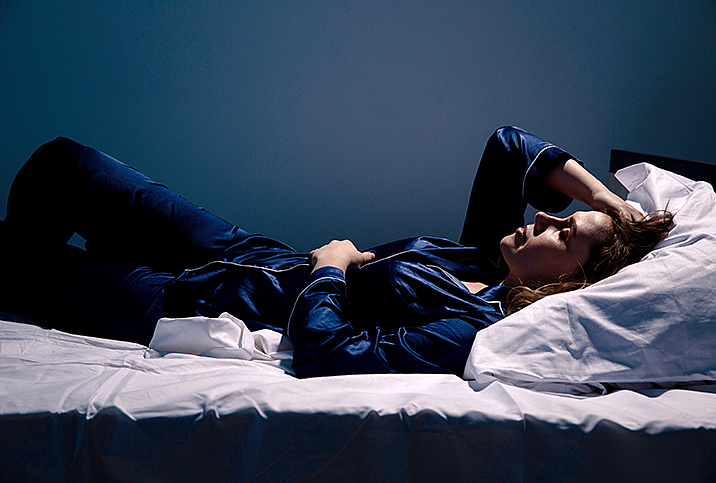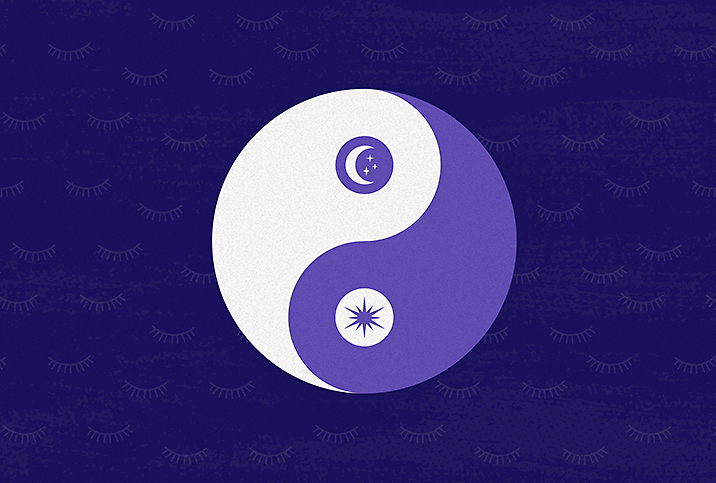Sleepwalking Can Be an Indication of Poor Sleep Hygiene

Somnambulism, more commonly known as sleepwalking, affects more than 8.4 million adults in the United States. It is prevalent in both adults and children and, while it may not seem like a critical issue, it can be deeply detrimental to healthy sleeping patterns.
Potential causes for sleepwalking
"[Somnambulism] is about being mobile and walking in a sleep state or in a sleep-like state, and usually there is a level of dissociation involved because somebody is asleep...in a pretty intense haze," said Kate Balestrieri, a psychologist based in Miami, Florida.
According to the American Academy of Sleep Medicine, some causes of sleepwalking include:
- Sleep deprivation
- Obstructive sleep apnea
- Migraine headaches
- Head injuries or brain swelling
- Stroke
- Travel or unfamiliar surroundings
- Stress
- Hyperthyroidism
- Premenstrual period
- Excessive alcohol
Shelby Harris, a sleep specialist based in White Plains, New York, identifies genetics and other causes of sleepwalking.
"It can be hereditary, sleep deprivation, sleep apnea, being sick or having a fever, seizures or even some medications such as sleeping pills," she said. She added that her children have experienced bouts with sleepwalking and that she dealt with sleepwalking when she was a child, too.
"Most of the time, [sleepwalking] is related to things like anxiety, going to sleep with a full bladder, or being incredibly tired," Balestrieri said. "Sometimes it can be about somebody who's had a head injury or they have some kind of PTSD. Concussion could be a kind of head injury that leads to sleepwalking but it could be any kind of traumatic injury or head injury."
"A lot of the potential causes tend to encourage a deeper, 'slow-wave' sleep that elicits the act of sleepwalking," Harris said.
The goal is always a consistent and healthy sleep routine, which can help to stem sleepwalking and can promote overall stability in a person's life.
The more severe the bout of sleep deprivation is or the more disjointed sleep is overall, the more your body will fall into a cycle of needing deeper sleep, which can lead to more instances of somnambulism.
"Younger kids have more sleepwalking, too, because they have a greater proportion of deep sleep in comparison to older adults," Harris added.
Abuse of substances can also perpetuate sleepwalking because it creates an imbalance in an individual's sleep routines.
"When we introduce different substances into our bodies, sometimes it can disrupt our nervous system, creating a false sense of rest or haziness or fatigue and that's not really a full sleep state," Balestrieri explained. "That's also true for alcohol."
Sleepwalking solutions
"Different kinds of treatments can involve different styles of therapy," Balestrieri said, "including different forms of natural treatments that can regulate one's sleeping patterns."
Here are some of the more common treatments and strategies to overcome somnambulism:
- Cognitive behavioral therapy
- Somatic therapy
- Hypnosis
- Listening to soft music before bed
- Meditating
- Creating a consistent sleep hygiene
- Close windows to avoid noise disruptions
- Take naps—if facing a tremendous amount of fatigue
"It's important to bear in mind that naps may backfire because [they] can cause disruption to an overall sleep routine," Balestrieri noted. "They may not be tired enough to go to sleep, which then perpetuates being more fatigued."
Harris also discussed possible treatments for people who struggle with sleep or sleepwalking.
"The first thing we look for is always making sure you get enough sleep and good quality sleep on a regular basis," she explained. "We also make sure that sleep hygiene is on point."
Harris said to avoid certain habits to avoid in order to achieve better sleep hygiene, including alcohol and tobacco use, large meals, exercising within three hours of going to bed and ingesting caffeine after 2 p.m.
"If that's not enough, then we do a sleep study. If there's something going on like sleep apnea, we treat that," Harris said. "Sometimes we do treatments where we time out briefly, routinely awakening the person to break the deep sleep cycle."
Harris emphasized that it's crucial when facing this disorder to work with a sleep specialist who can work with you to determine possible causes for your poor sleep and can take treatment to the next level if necessary.
"In more severe cases that don't respond to these things, we go to medications," Harris added.
Let them walk
Harris recommends that a patient's friends and family should not disrupt their sleepwalking by waking them up. They should instead guide them safely back to bed. You should also make sure the environment around has the fewest possible amount of obstacles that could cause potential injuries. That said, keep in mind that some people prefer to be woken up when they're sleepwalking while others do not.
Not all treatments will work for everyone—there is no universal treatment that can cure somnambulism. It is key to work with a specialist to find the underlying causes of your irregular sleep behaviors because it requires an overall collaborative conversation with the people you live with as well as the medical professionals helping you.
The goal is always a consistent and healthy sleep routine, which can help to stem sleepwalking and can promote overall stability in a person's life.


















